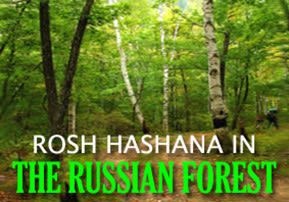
Rosh Hashana In The Russian Forest
As the voice of the shofar rose up to the ears of the members of the minyan huddled above, tears rained down on the baal tokeah. Fervent prayers sailed up..

“And so it happened after these things that Hashem tested Avraham (Abraham) and said to him, ‘Avraham.’ And he [Avraham] replied ‘Here I am.’ And He [Hashem] said, ‘Please take your son, your only one, whom you love – Yitzchak (Isaac) – and get yourself to the Land of Moriah; bring him [Yitzchak] up there as an offering, upon one of the mountains, which I shall indicate to you’” (Bereishit 22:1-2).
“And Avraham took the wood for the offering, and placed it on Yitzchak, his son. He took the fire pan and the knife, and the two of them went together” (Bereishit 22:6).
“Avraham built the altar there, and arranged the wood; he bound Yitzchak, his son, and he placed him on the altar atop the wood. Avraham stretched out his hand, and took the knife to slaughter his son. And an angel of Hashem called to him from heaven, and said, ‘Avraham! Avraham!’ And he [Avraham] replied ‘Here I am.’ And he [the angel] said, ‘Do not stretch out your hand against the lad nor do anything to him, for now I know that you are a God fearing man, since you have not withheld your son, your only one, from Me’” (Bereishit 22:9-12).
Avraham was faced with the ultimate test in life: to sacrifice his beloved son Yitzchak for the sake of Heaven. Hashem tested Avraham to see if Avraham would put the will of Heaven above his individual feelings for his son Yitzchak. This is the essence of a Jew, putting Hashem’s will before his own. This is why we read the parsha of the binding of Yitzchak on Rosh HaShana.
Just as Hashem tested Avraham, Hashem tests us everyday to see what our priorities are. Do we selfishly serve ourselves or do we serve Hashem? Our father Avraham was willing to sacrifice his son to serve Hashem. How much are we willing to sacrifice for Hashem? Hashem does not ask very much from us. Are we willing to take a few more minutes to say blessings over food? Are we willing to talk less with our friends and use that time to learn more Torah or put on tefillin? Are we willing to open up our wallets to donate to a worthy tzedakah cause?
Very often we hear people say: "Don’t bother me now, I am busy now earning a living.” Or, “Please! I’m trying to eat right now. I want to take a nap now. Excuse me! I just have to do this for myself." How often does a person approach his Judaism with the attitude of "Hashem needs this now. Hashem wants this. I just have to do this for Hashem"? Think about how spiritually uplifting and rewarding the coming year will be if we make Hashem’s will our will. The question we therefore ask ourselves on this Rosh Hashana is the following: In the coming year will I serve myself or will I serve Hashem? The following inspiring true story illustrates how some Jews serve Hashem with self sacrifice.
It was a cold Russian morning in early September, 1964 and the American Rabbi Braunstein was in Kiev once again. By 1964, Jewish communities in Russia barely resembled the vibrant Jewish life which had characterized Russia for so many centuries. Communist Russia was a dangerous place where Jews were persecuted and killed and where Judaism was almost completely stifled. One sad example, thousands of miles of railroad tracks of the Russian railroad were literally laid down on the bodies of Jewish slave laborers who died in its construction.
Over the years, Rabbi Braunstein made several dangerous trips to Communist Russia, in order to perform brit milahs and to spread Torah-true Judaism among the oppressed Russian Jews. Most of his work was done under fear of his life. Several times the evil Russian police caught and beat Rabbi Braunstein.
One time, after a particularly bad beating, when Rabbi Braunstein was near death, the Russians sent him to England on a special medical plane, in order that he not die in Russia. Thankfully, Rabbi Braunstein survived that beating and lived to return to Russia to continue his holy work.
One of the most memorable Rosh Hashanahs that Rabbi Braunstein remembers is the Rosh Hashana he spent in Kiev, Russia in 1964. After the morning prayers on Erev Rosh Hashana, a Skverer Chassid approached Rabbi Braunstein and asked him if he would like to join a special minyan for Rosh Hashana. (It is important to note that by this time after so many years of Russian persecution, Russian Jews for the most part lacked almost all external trappings of Judaism, although their hearts still beat strongly for Hashem.)
Rabbi Braunstein was intrigued by the offer of the Skverer Chassid and therefore he quickly agreed to join the minyan. Rabbi Braunstein was instructed to look for two men who would walk by his hotel the next morning at 7 a.m. The evil KGB was always lurking in the area, so the utmost care had to be taken to avoid detection. The Skverer Chassid instructed Rabbi Braunstein to carefully follow the two men in such a way that nobody would notice.
It was only early September, but it was still very cold in Kiev, so Rabbi Braunstein was instructed to bundle up well. Sure enough, the next morning at 7 a.m., as Rabbi Braunstein waited in the hotel lobby, two men walked by the entrance very quickly. As instructed, Rabbi Braunstein walked at a distance behind them.
The three, two ahead and one way behind, walked for what seemed like hours on that frigid winter morning. It was very cold and the walk was very long, yet Rabbi Braunstein walked with determination. Soon, Rabbi Braunstein and the others left the city and entered the fields surrounding Kiev. Eventually, the group arrived at a small forest. Two righteous women stood at the entrance to the forest. They were guarding against such unwanted visitors as the Russian police and the dreaded KGB.
As Rabbi Braunstein approached an opening in the trees, he noticed an amazing site. Several Jews milled around, some standing, some sitting on fallen trees which served as benches. This was the Rosh Hashana minyan, in the middle of a forest outside Kiev. This was a minyan made of up survivors, survivors of the evil Russian Empire. Rabbi Braunstein was amazed at what he saw.
The congregants huddled around the few machzorim that they had managed to obtain. Soon after Rabbi Braunstein arrived, a chassid began to lead the prayers. The minyan consisted of Skverer, Lubavitcher, Chernobler, and other chassidim. It was a davening that Rabbi Braunstein remembered until the day he died. Sitting nearby was an 80 year-old man who was too tired to stand up during the prayers. Apparently, the man had spent all his strength taking the long walk to the secret forest.
The old man sat on a log, wrapped in a tattered tallit; for new tallits and the like were not available in Communist Russia. The old man sat crying on the log from the beginning of the prayers to the end. Rabbi Braunstein watched in awe as the old man soaked his raggedy tallit in tears.
Soon, it came time to blow the shofar. This was the most dangerous time for the secret minyan. The baal tokeah (shofar blower) wanted to immerse in a mikveh before blowing the shofar, as is the common practice for many. Where would they find a mikveh deep in the Russian woods? The baal tokeah went off to the side and undressed. He then proceeded to roll himself in the snow several times before getting dressed and rejoining the minyan.
The voice of the shofar had to reach up to the ears of the minyan and onwards to heaven without alerting the Russians of the holy congregation. So the baal tokeah sat on the forest floor while the minyan crowded around, squeezed together and hunched over him. As the voice of the shofar rose up to the ears of the members of the minyan huddled above, tears rained down on the baal tokeah. Fervent prayers sailed up to the heavens, begging Hashem for forgiveness and pleading for an end to the evil Russian Empire. Having shed so many tears on that cold Russian day, Rabbi Braunstein left the minyan and trudged back to Kiev. It was a Rosh Hashana he would never forget.
Nearly 25 years later, the Iron Curtain and the Communists finally came down; at least partly from the power of that secret minyan in a forest outside of Kiev in 1964 (as told by Rabbi Yosef Chaim Greenwald).
Let us all be inspired by this story to serve Hashem in the coming year, instead of serving ourselves.
(Used with permission from "Good Shabbos"




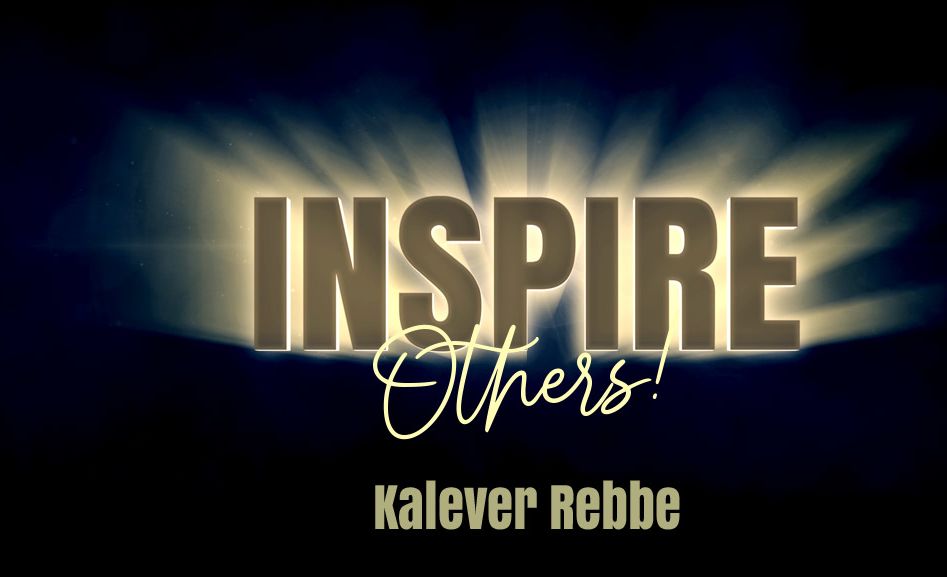

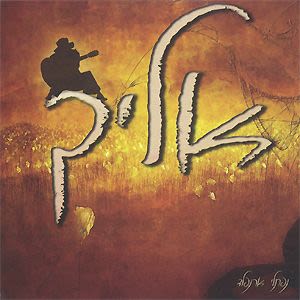


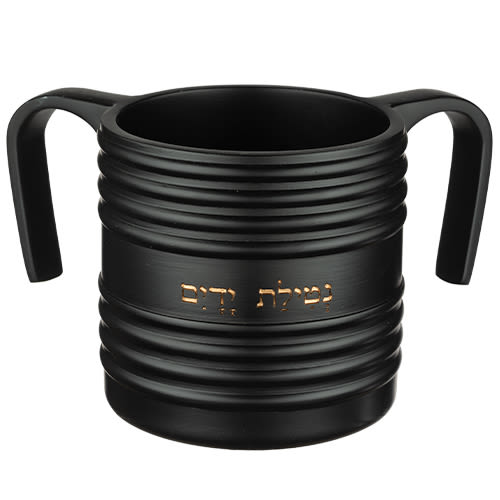
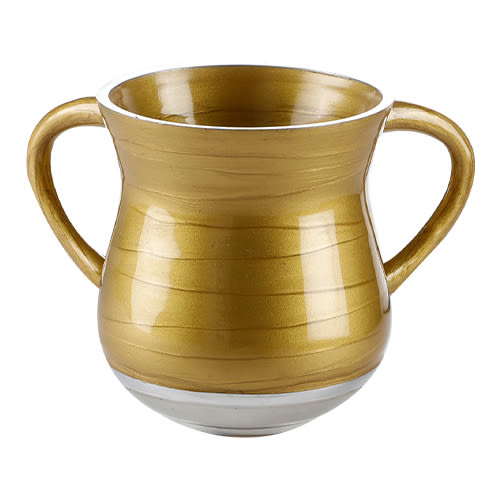
Tell us what you think!
Thank you for your comment!
It will be published after approval by the Editor.